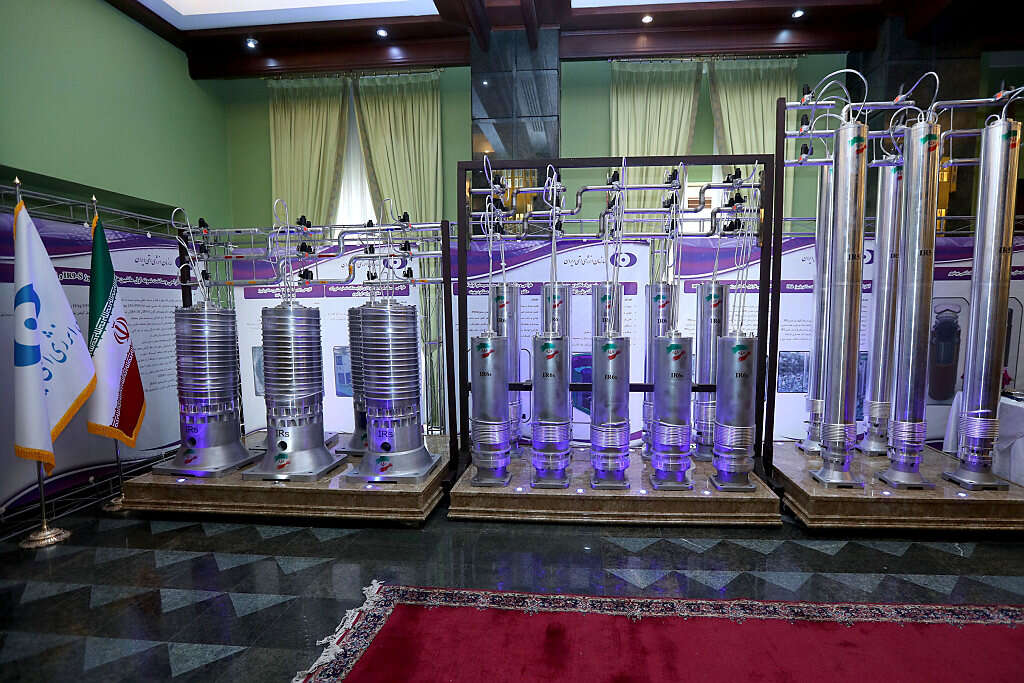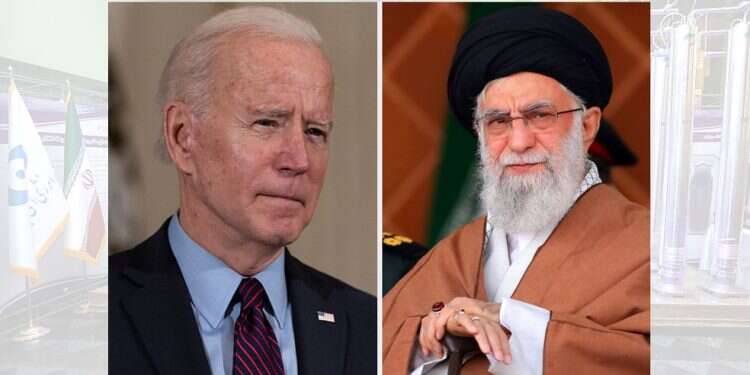Vienna is once again bustling with another round of diplomacy focused on the Iranian nuclear program, but unlike the direct talks that led to the flawed 2015 agreement, this time the Americans and Iranians are not engaging with each other directly.
Follow Israel Hayom on Facebook and Twitter
No matter the format, it is impossible to escape the result that leads to a very bad deal. The fact that the US is about to again crumple seems obvious and it is based on the familiar, but very erroneous, approach American diplomats take on the negotiations.
This foreseeable buckling is not hard to understand. The Biden administration has been imploring the Iranians to return to the negotiating table to ensure they will abide by the nuclear deal, all while the Iranian negotiating team has been playing hard to get.
The absurd is that the talks focus mostly on what the West has to pay the world's top state-sponsor of terrorism for it to agree to re-enter a flawed nuclear deal that in 2015 already gave Tehran everything it wanted – including clearing its path to develop nuclear weapons – in exchange for massive economic relief in the form of lifting the sanctions while receiving almost nothing in return.
There is nothing wrong with focusing on nuclear diplomacy but this move has to be leveraged by the US. The Americans have considerable leverage points to wield but they "insist" on shelving them.
Economically speaking, Iran's cash reserves have dropped from more than $120 billion in 2018 to $4 billion. To make matters worse, it was reported that the Natanz uranium enrichment facility will be unable to operate for the next nine months or so following a mysterious explosion. The regime's ambitions to develop nuclear weapons have taken a hit following the Nov. 27, 2020 assassination of Mohsen Fakhrizadeh, the head of Iran's military nuclear program, and lastly, the regime has been struggling to regain ground from a regional standpoint following the Jan. 3, 2020 elimination pf Quds Force commander Gen. Qassem Soleimani by the Trump administration.
All these factors afford Washington substantial leverage that can improve even further by resorting to deterrence and formulating a credible military threat.

Biden's team claims its goal is to reach a "longer, stronger, broader" deal. This goal is impossible unless the White House sets a new policy on Iran, one that is not held hostage by the nuclear deal. A quick return to the old agreement, or worse, gradually crawling back to it, will result in relinquishing the existing leverage, thus allowing Iran to leverage the talks.
Such an approach would lead to zero motivation for the Iranians to negotiate another deal, let alone one that the West would define as better. Returning to the 2015 nuclear agreement will spell the end with respect to the ability to reach another agreement until it expires.
On the other hand, the Iranian strategy is clear: to use the threat of nuclear escalation to accumulate leverage and extort concessions in the form of easing sanctions and returning to the agreement, which would allow Tehran to move forward with nuclear negotiations. A return to the agreement will allow the regime to legally install the advanced centrifuges it has built and tested, improve and build its enrichment capabilities, and wait for the restrictions to expire as scheduled, by the end of the decade.
After 2030, Iran will be free of any restriction on its industrial-level uranium enrichment capabilities and it would be able to reach the threshold from which it would be able to enrich uranium to the level and quantity required for the construction of nuclear weapons quickly – with the world's superpowers helpless to stop it.
The Iranians can already produce advanced centrifuges in large numbers, and their scientists have mastered the feature of the cascade system of centrifuges. In short, the regime can enrich uranium three-to-10 times faster.
This is a lost cause – unless the Biden administration comes to its senses and pushes for a new agreement. Tehran must be held accountable for its past actions, which we know about thanks to the nuclear archives that the Mossad intelligence agency smuggled out of Iran in 2018. The Iranian violations of the deal are even more egregious given the latest findings by the International Atomic Energy Agency.
It is very clear that the IAEA's decision of 2015 – pushed for by then-US Secretary of State John Kerry – to close the investigation into the potential military dimensions of Iran's nuclear program was a grave mistake.
The documents found in the Iranian archives and the IAEA's reports have proven that Iran is closer to a nuclear weapon than we thought. The IAEA's failure to make its findings public illustrates one of the nuclear deal's main flaws.
Revising the old nuclear deal by addressing the problems of the past fails to address the real issues of the present: the development of weapons system; mapping and understanding Tehran is past activities and current violations; continued uranium enrichment in underground facilities and the continued research and development of advanced centrifuges.
Despite recent disruptions, Iran continues its efforts to develop weapons systems and advanced centrifuges that enable a "sneak out" strategy instead of a "mad dash" one. It will need fewer advanced centrifuges to get what it needs to develop a bomb, and this activity would be easier to hide and harder to detect.
Gone are the days when the objective was to keep Iran "one year" from producing a sufficient quantity of weapon-grade uranium to produce its first bomb. Returning to the 2015 nuclear deal will allow Iran to continue building enrichment facilities in clandestine sites and secretly amass the enriched uranium it needs for a bomb.
There are also new concerns. The Iranian regime is also making critical progress in developing weapons systems, such as metal uranium processing, hot cells, and irradiation of 20%-enriched materials – all of which can help Iran build a nuclear weapon.
Subscribe to Israel Hayom's daily newsletter and never miss our top stories!
A "longer, stronger" deal must also prevent Iran from becoming a "nuclear threshold" state. The regime cannot argue it only has a "civilian nuclear program" while keeping it underground. Any new deal must therefore address the nuclear program's three components: fissile materials, weaponized systems, and the means of delivery. It may be time for broader agreements that address the regime's support for terrorism and its missile program, but the nuclear problem must be resolved first.
The US can permanently cut off any path Iran may have to nuclear weapons or again buckle at the negotiating table. It is time for the Biden administration to opt for a tough approach in the negotiations.
Brig. Gen. (Res.) Professor Jacob Nagel is a former national security adviser to the prime minister. Mark Dubowitz is the CEO of the Foundation for Defense of Democracies.




